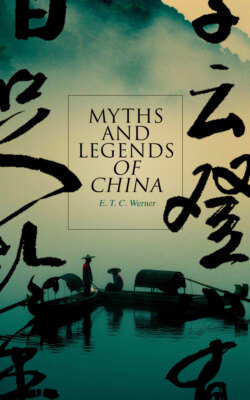Читать книгу Myths and Legends of China - E. T. C. Werner - Страница 36
На сайте Литреса книга снята с продажи.
Religious Ideas
ОглавлениеChinese religion is inherently an attitude toward the spirits or gods with the object of obtaining a benefit or averting a calamity. We shall deal with it more fully in another chapter. Suffice it to say here that it originated in ancestor-worship, and that the greater part of it remains ancestor-worship to the present day. The State religion, which was Confucianism, was ancestor-worship. Taoism, originally a philosophy, became a worship of spirits—of the souls of dead men supposed to have taken up their abode in animals, reptiles, insects, trees, stones, etc.—borrowed the cloak of religion from Buddhism, which eventually outshone it, and degenerated into a system of exorcism and magic. Buddhism, a religion originating in India, in which Buddha, once a man, is worshipped, in which no beings are known with greater power than can be attained to by man, and according to which at death the soul migrates into anything from a deified human being to an elephant, a bird, a plant, a wall, a broom, or any piece of inorganic matter, was imported ready made into China and took the side of popular superstition and Taoism against the orthodox belief, finding that its power lay in the influence on the popular mind of its doctrine respecting a future state, in contrast to the indifference of Confucianism. Its pleading for compassion and preservation of life met a crying need, and but for it the state of things in this respect would be worse than it is.
Religion, apart from ancestor-worship, does not enter largely into Chinese life. There is none of the real 'love of God' found, for example, in the fervent as distinguished from the conventional Christian. And as ancestor-worship gradually loses its hold and dies out agnosticism will take its place.
